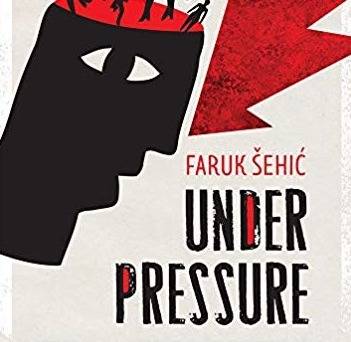 I Am Forbidden
I Am Forbidden
In the latter days of World War Two, an orthodox Jew in Romania tells a rabbi that his wife had been raped while a prisoner of the local fascists, and asks if he can take her back. The rabbi says it is only acceptable if the man is not of priestly descent, and if there are witnesses that his wife put up a struggle. Otherwise the woman is forbidden. It’s a brief scene that conveys the intolerance of a society run by rigid theocratic rules, the backdrop of Markovits’ novel about relationships inside an Orthodox Jewish community. Its members are expected to live within a strict, unforgiving code – even husbands and wives have to conduct their sexual relations according to ritual – women should know their place and contact with gentiles should be minimised. Those who break the rules become outcasts.
The first novel in English by Anouk Markovits, who grew up in a strict Orthodox community in France, focuses on three characters, introduced as children in Romania during the war. Josef is shielded by a gentile woman after his family are murdered by the local fascist militia. Mila, another orphan, is saved from the fascists by Josef and led to the care of the Zalmans, an Orthodox family living in an area unaffected by the violence, where she becomes the sister of their daughter Atara.
Many Jews escaped the Holocaust in Romania, and when the war ends the community leaders try to reassert its purity: Josef is taken from his surrogate mother and sent to study under a hardline rabbi in New York; the girls’ family moves to Paris, maintaining a pious disdain for the surrounding world. Their adolescence involves a growing tension between the desire to live as part of a family, despite its repressive atmosphere, and the yearning to enjoy the more exciting world that surrounds them.
They love each other as sisters, but are not equally bold. Atara breaks free of the family and becomes an object of shame, while Mila agrees to marry Josef, now a rabbi in New York’s Orthodox community. Mila endures the torment of years without a child, a failure that their law attributes to the wife. She reaches breaking point during a visit to her family in 1968, when she is swept up in the euphoria around the Paris riots and has an impulsive sexual liaison with a stranger. Months later she has a daughter, Josef knows the truth but says nothing, and the secret becomes the dominant feature of their marriage
It takes more than forty years for Mila to reach out to Atara, seeing her as an ally in an attempt to help her daughter’s daughter break free from an arranged marriage that she appears to fear. The results are messy and tragic, a consequence of emotional forces too strong and complex for the characters to overcome; but an epilogue provides some light, and the sense that gratitude and love can survive decades of suppression.
Among the story’s skilfully woven themes is that some Orthodox Jews believed the Holocaust was God’s punishment for deviating from the law of the Torah and they could only be redeemed through a joyless way of life. Some were also very antagonistic towards Israel, preferring to remain devoutly isolated within an ungodly gentile world.
It also deals with the community’s intolerance, its inherent sexism, the hypocrisy of some of its leaders and the deception that sustains its power structure and goes on within families. This is all tangled with the central tension between Mila’s need to belong and Atara’s embrace of the other things that give life a meaning.
Markovits conveys the tension through the detail of words and behaviour, and makes sparing but effective use of dramatic or violent events. Her prose is simple and sharp, and she is adept at choosing incidents to move along a story that spans seventy years in 270 pages.
Overall it is the powerful sense of suppressed longing among her characters that makes the book such an engrossing and affecting read.

